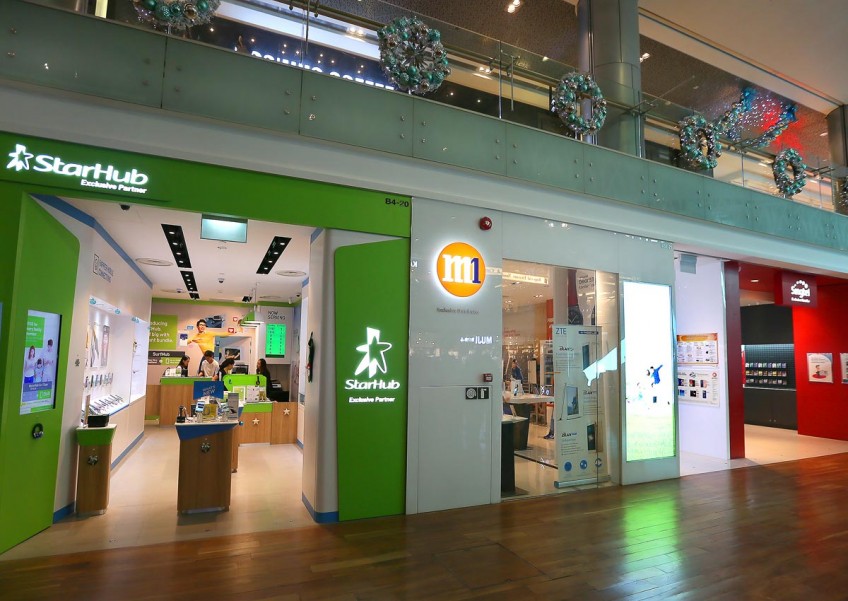StarHub, M1 ink deal on deeper co-operation

As Singapore's telecommunication industry gets ready to welcome a new player, the existing second and third telcos by market share have decided to explore options of working more closely together.
On Jan 12, M1 and StarHub Mobile (StarHub) signed an MOU (memorandum of understanding) to study potential further collaboration in mobile infrastructure sharing, with a focus on radio access networks, backhaul and access assets.
The two telcos have been sharing mobile infrastructure for the past several years, including the combined antenna systems, in-building fibre and tunnel cables.
The current MOU, according to officials connected with the telcos, aims for "deeper mobile network co-operation" that will enable both companies to optimise use of certain network elements through sharing, and improve network coverage and capacity.
Network traffic will continue to be managed independently by the companies.
A spokesman added that, at this point, the companies are not planning on sharing spectrum.
The spokesman added that pooling of resources will allow M1 and StarHub to roll out more cost effective next-generation networks to meet fast-growing demand of mobile data services.
With Australian telco operator TPG Networks winning the bid to become Singapore's fourth telco, the local market is expected to liven up with more choices for customers.
This is expected to result in more emphasis being given by all the players on the quality of network coverage and connectivity.
TPG is expected to start building its network from April this year, with a targeted services rollout date of September 2018.
The MOU was signed by M1's CEO, Karen Kooi and her StarHub counterpart, Tan Tong Hai.
Mr Tan said: "We are cooperating to bring the Singapore infocomm industry to the next level, to compete not on pure infrastructure ownership, but at a higher level of customer service and innovative value creation. Sharing mobile network radio elements with M1, but keeping our individual mobile core networks, will allow StarHub to provide better mobile service (in particular, mobile coverage) and still be able to differentiate ourselves."
Ms Kooi added: "When realised, this could lower operational and capital expenditures for both M1 and StarHub, so that we can run our existing mobile services efficiently, and still be able to invest in future technologies to keep Singapore at the forefront of the infocomm industry."
amit@sph.com.sg

This article was first published on January 13, 2017.
Get The Business Times for more stories.